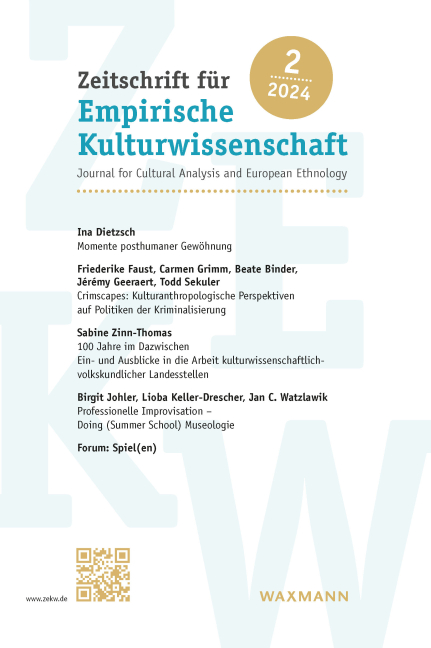Abstract
Regional centres for cultural and folklore studies in Germany are regionally and nationally networked institutions and are organised in different ways. They research, document, advise and communicate topics of everyday culture. They act in the in-between, as an interface between academia and the public. Their work primarily involves the transfer of knowledge into cultural practice and the exchange of knowledge with universities, specialised societies, museums and civil society institutions. To mark the centenary of the Regional Centre for Everyday Culture in Stuttgart, this article looks back at its past and considers the challenges and opportunities of the future. These include new needs and requirements for counselling in the context of intangible cultural heritage, but also with regard to new mediation formats, online presence and the digital availability of collections and archives. As a further challenge in times of scarce resources and public funding, the work and self-image of the regional centres must also be increasingly aligned with the expectations of the funding bodies and the public.

Dieses Werk steht unter der Lizenz Creative Commons Namensnennung 4.0 International.
Copyright (c) 2024 Zeitschrift für Empirische Kulturwissenschaft. Journal for Cultural Analysis and European Ethnology

